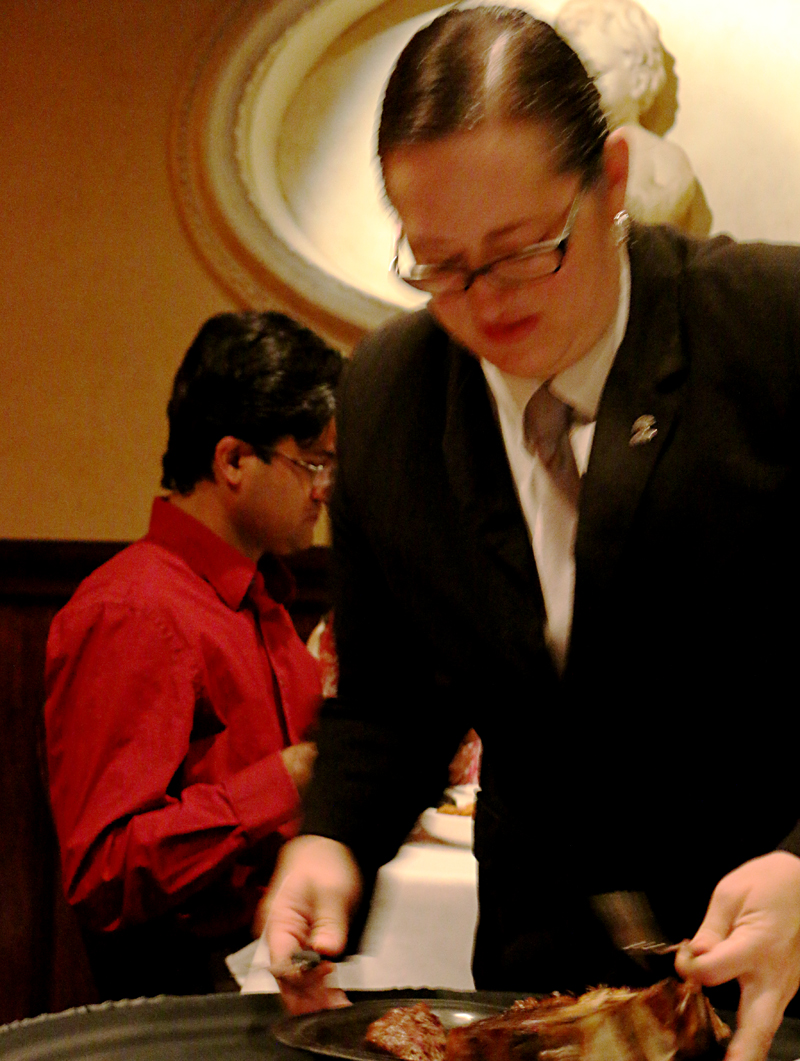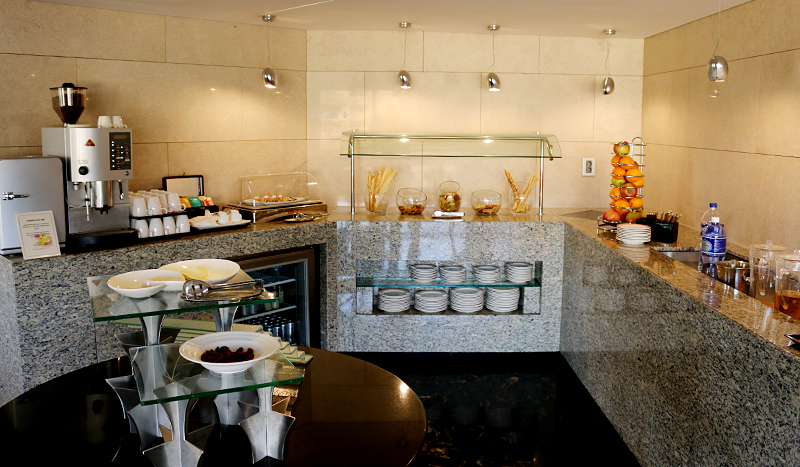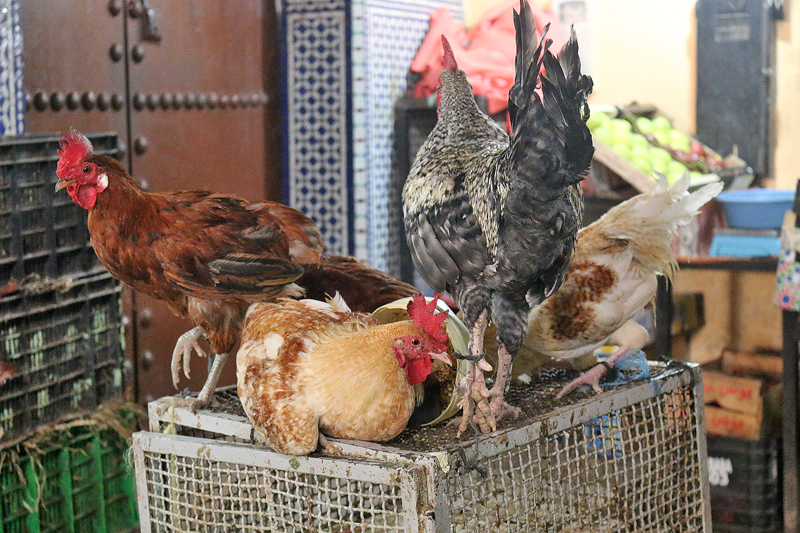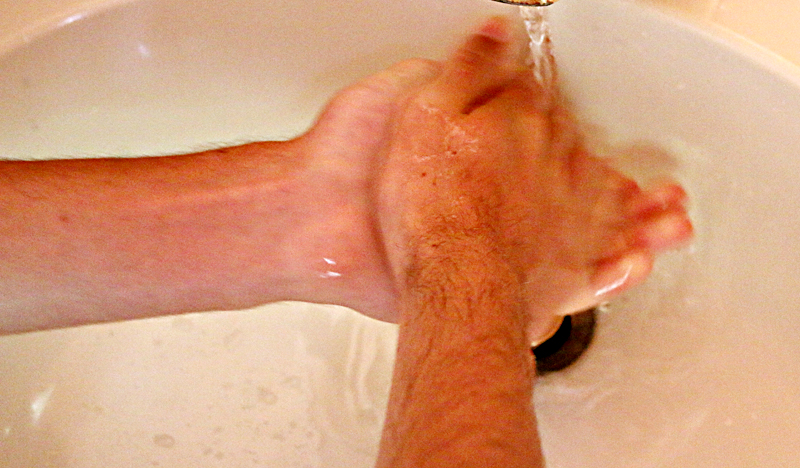What if you were at a lounge or restaurant and was ready to eat something — only to find that the food for which you were craving was handled with bare hands? Would you then suddenly lose your appetite?
Is Handling Food With Bare Hands Disgusting?

“While the lounge is beautiful and well-stocked with high-quality food and drinks, the hygiene of the food preparation leaves much to be desired”, FlyerTalk member manhattan92 posted. “On both visits, I saw the chefs in the open kitchen cutting fruits and salad vegetables with bare, ungloved hands. My desire to eat the melon I just saw them handling or to eat the salad tomatoes freshly sliced by bare hands disappeared.”
The same chefs apparently then also handled tacos in the same manner. Is this considered unhygienic?
That depends…
You Guessed It: Wash Your Hands

Imagine if a person was about to prepare your food order when suddenly she sneezes into her hand and then proceeds to fulfill your order without first washing her hands. What would you do?
I am no chef; but I do know that when people properly wash their hands prior to preparing food for consumption, the food is generally safe — unless they have contracted some sort of contagious disease, which would mean that they have no business working and should instead stay home and get well.
A more prevalent danger is cross contamination: if the hands — or gloves which covered the hands, for that matter — handled raw meat and then touched fresh fruit or vegetables, that increases the chance of spreading salmonella or some other bacteria which can lead to food poisoning.

Additional information pertaining to basic information for handling food safely is readily available from the Food Safety and Inspection Service of the Department of Agriculture of the United States — as well as this article pertaining to food safety during winter weather — which includes:
- Always wash hands with warm water and soap for 20 seconds before and after handling food.
- Do not cross-contaminate. Keep raw meat, poultry, fish, and their juices away from other food. After cutting raw meats, wash cutting board, utensils, and countertops with hot, soapy water.
- Cutting boards, utensils, and countertops can be sanitized by using a solution of one tablespoon of unscented, liquid chlorine bleach in one gallon of water.
- Marinate meat and poultry in a covered dish in the refrigerator.
Summary

When you think about it, eating out in a public place — whether at a restaurant, lounge, or catering hall — is a leap of faith in which you automatically assume that your food was prepared properly and is suitable for consumption; and that trust can even extend to purchasing ingredients at your favorite supermarket for meals you prepare at home. Most people do not constantly get sick from eating, thanks to food safety laws, increased awareness about food handling — and our own remarkable immune systems.
I have passed through the kitchens of numerous catering halls and restaurants. After seeing what goes on in these places, manhattan92 may never eat at lounges or dining establishments ever again.
The standards of food safety which are discussed in this article pertain to dining establishments in the United States. As a frequent traveler, you know that those same standards can vary widely from country to country; and preventing yourself from contracting an illness which was borne from food is never completely guaranteed…
…but if you want to increase the odds of ensuring that you are not struck down by some illness which resulted from eating food that is not completely safe — which could potentially seriously derail your travel plans — consider following these food safety tips from the Centers for Disease Control and Prevention whenever you eat outside of your home:
- Check inspection scores. Check a restaurant’s score at the official Internet web site of your local health department, ask the health department for a copy of the report, or look for it when you get to the restaurant.
- Look for certificates which show kitchen managers have completed food safety training. Proper food safety training can help improve practices that reduce the chance of spreading foodborne germs and illnesses.
- Look for safe food-handling practices. Sick food workers can spread their illness to customers. Most kitchens are out of the sight of the customer; but if you can see food being prepared, check to ensure that workers are using gloves or utensils to handle foods that will not be cooked further — such as deli meats and salad greens.
- Order food which is properly cooked. Certain foods — including meat, poultry, and fish — need to be cooked to a temperature high enough to kill harmful germs that may be present. If you are served undercooked meat, poultry, seafood, or eggs, send them back to be cooked until they are safe to eat.
- Watch out for food served lukewarm. Cold food should be served cold, and hot food should be served hot. If you are selecting food from a buffet or salad bar, make sure that the hot food is steaming, and that the cold food is chilled. Germs that cause food poisoning grow quickly when food is in the danger zone — between 40° Fahrenheit and 140° Fahrenheit.
- Ask your server if raw or lightly cooked eggs are used in foods such as Caesar salad dressing, custards, or hollandaise sauce. Raw or undercooked eggs can make you sick unless they’re pasteurized to kill germs.
- Take care of your leftovers quickly. Get them to the fridge within two hours, or just one hour if it is a hot day. Eat them within three to four days. Throw them out after that time.
All photographs ©2014, ©2015 and ©2018 by Brian Cohen.

